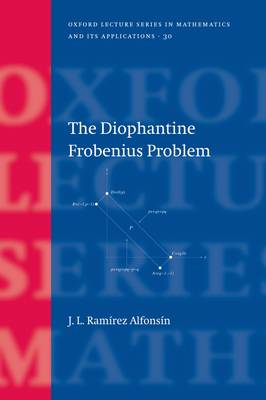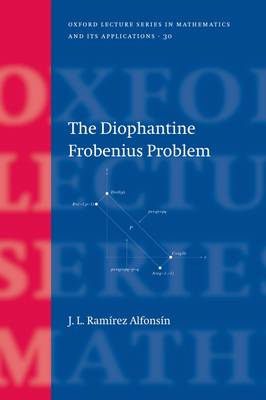
- Afhalen na 1 uur in een winkel met voorraad
- Gratis thuislevering in België vanaf € 30
- Ruim aanbod met 7 miljoen producten
- Afhalen na 1 uur in een winkel met voorraad
- Gratis thuislevering in België vanaf € 30
- Ruim aanbod met 7 miljoen producten
Zoeken
Omschrijving
During the early part of the last century, Ferdinand Georg Frobenius (1849-1917) raised the following problem, known as the Frobenius Problem (FP): given relatively prime positive integers a1, an, find the largest natural number (called the Frobenius number and denoted by g(a1, an) that is not representable as a nonnegative integer combination of a1, an.
At first glance FB may look deceptively specialized. Nevertheless it crops up again and again in the most unexpected places and has been extremely useful in investigating many different problems. A number of methods, from several areas of mathematics, have been used in the hope of finding a formula giving the Frobenius number and algorithms to calculate it. The main intention of this book is to highlight such methods, ideas, viewpoints and applications to a broader audience.
At first glance FB may look deceptively specialized. Nevertheless it crops up again and again in the most unexpected places and has been extremely useful in investigating many different problems. A number of methods, from several areas of mathematics, have been used in the hope of finding a formula giving the Frobenius number and algorithms to calculate it. The main intention of this book is to highlight such methods, ideas, viewpoints and applications to a broader audience.
Specificaties
Betrokkenen
- Auteur(s):
- Uitgeverij:
Inhoud
- Aantal bladzijden:
- 260
- Taal:
- Engels
- Reeks:
Eigenschappen
- Productcode (EAN):
- 9780198568209
- Verschijningsdatum:
- 2/02/2006
- Uitvoering:
- Hardcover
- Formaat:
- Ongenaaid / garenloos gebonden
- Afmetingen:
- 155 mm x 234 mm
- Gewicht:
- 521 g

Alleen bij Standaard Boekhandel
+ 612 punten op je klantenkaart van Standaard Boekhandel
Beoordelingen
We publiceren alleen reviews die voldoen aan de voorwaarden voor reviews. Bekijk onze voorwaarden voor reviews.








